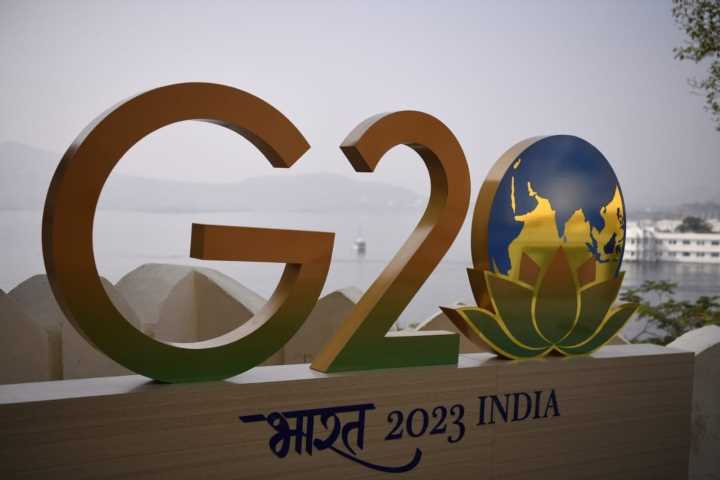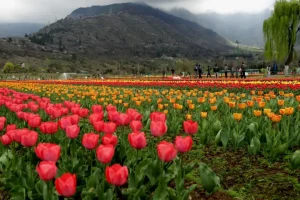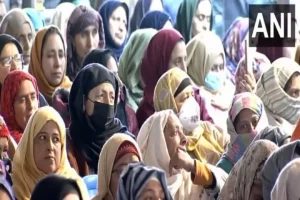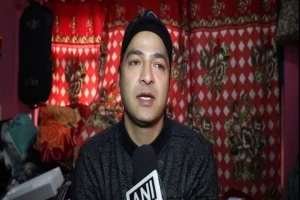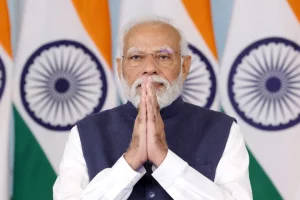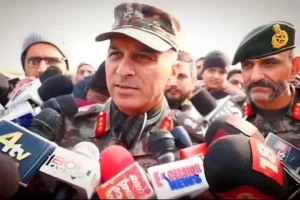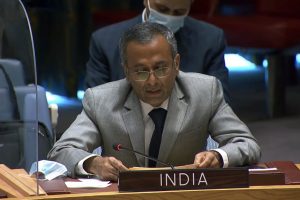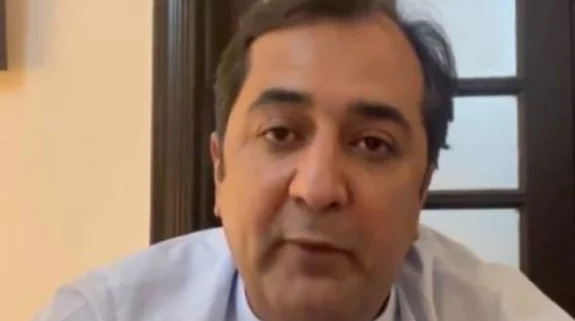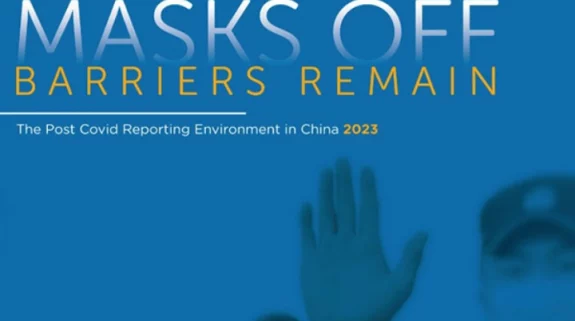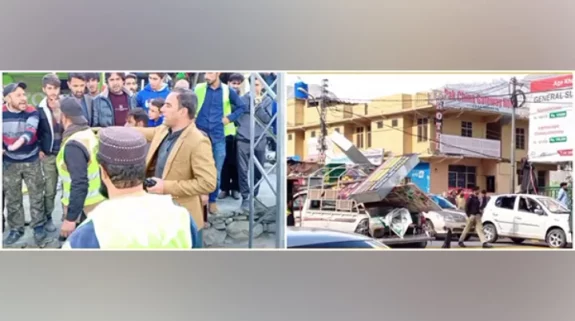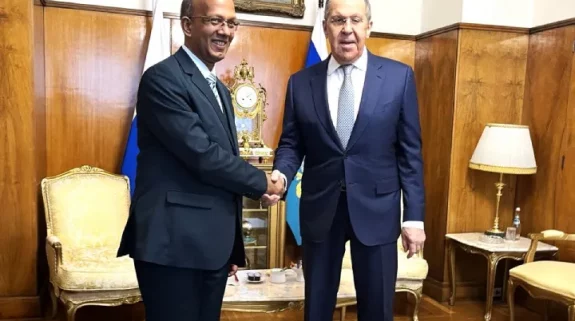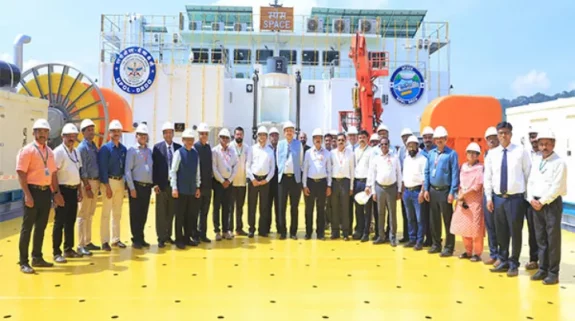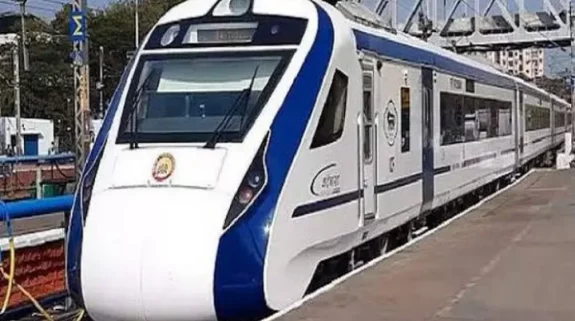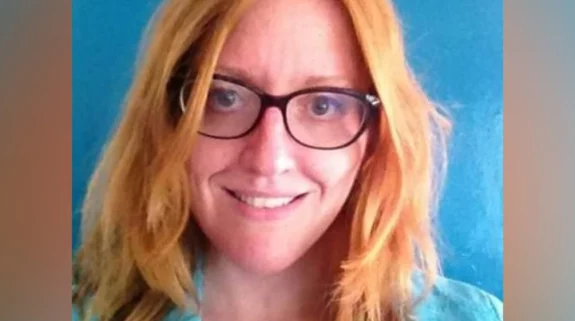Srinagar: Preparations for holding the scheduled G20 Working Group on Tourism meeting and the annual Amarnath pilgrimage are understood to be the key agenda of the two high level security review meetings the Union Ministry of Home Affairs has called in New Delhi on 12 and 13 April.
The top brass of the Union Territory government, including Lieutenant Governor Manoj Sinha, have been called to the national capital for their assessment of the security related issues and necessary arrangements to be put in place. Chief Secretary Arun Kumar Mehta, Financial Commissioner Home RK Goyal, Director General of the Jammu and Kashmir Police Dilbag Singh and Special DG CID, Rashmi Ranjan Swain, besides top representatives of the Central security forces and intelligence agencies are briefing Home Minister Amit Shah and Home Secretary Ajay Kumar Bhalla on how the two important events would be held smoothly.
While the pilgrimage, which is being extended from 45 to 60 days this year and would start in June, is a routine agenda item, the MHA, according to sources, perceives “some trouble” from Pakistan in an attempt to spoil the G20 event. As already reported, the Ministry of Foreign Affairs in Islamabad has on Tuesday issued a statement, raising objections to scheduling of three particular G20 events in the UTs of Jammu and Kashmir and Ladakh.
Some decisions regarding the special security drill have already been taken. These include mobilisation and deployment of Special Forces, drone surveillance and random frisking and vehicle checking in Srinagar, where the G20 meeting is being held at Sher-e-Kashmir International Conference Centre on 22-25 May. A similar security drill has been ordered around Dachigam National Park and the famous tourist resort of Gulmarg, close to the LoC in Baramulla district, where some picnics have been arranged for the world diplomatic dignitaries.
The high-level meeting on Wednesday is being presided over by the Union Home Secretary even as the Home Minister is scheduled to chair another meeting with the same participants on Thursday. On Tuesday, the Home Secretary held a detailed review meeting with the Railway authorities over the security measures in place for smooth operation of the train services from Pathankot to Baramulla in Kashmir.
Sources said the Union Home Ministry wants security measures further intensified along the railway track from Lakhanpur to Jammu especially the track which falls close to the International Border in Jammu, Samba and Kathua districts. Security arrangements of all other vital installations of Railways and all Railway Stations are also being beefed up.
Officials insist that Pakistan’s discomfiture over the G20 events being held in J&K and Ladakh betrays “an intention of sabotage” which warrants an extraordinary attention towards all threat perceptions including the raw agency inputs.
It is for the first time, in several decades, particularly after the abrogation of Article 370 and reorganisation of the erstwhile State in August 2019 that a major international event is being conducted in Jammu and Kashmir. Significantly, all the big economic and military powers—the United States of America, Russia, China, France, Germany, Japan, Canada and the European Union—as also the Islamic countries like Saudi Arabia and the United Arab Emirates, are members of the Group-20. India is currently holding the presidency of the group.
International events in Kashmir have a history of sabotage. When the first international cricket match was held in Kashmir in 1983, groups of spectators raised Pakistan’s slogans and flags, tossed litter on Indian players and damaged the pitch at the Sher-e-Kashmir Cricket Stadium.
‘Newsmaking attempts’ were witnessed on several occasions when a major Kashmir related development was taking place or a top world dignitary visiting India. The most nightmarish remains the then US President Bill Clinton’s visit to India and Pakistan in March 2000. Thirty-six members of the minority Sikh community were massacred at Chittisinghpura in Anantnag district.
On the day Prime Minister Atal Behari Vajpayee visited Pakistan and launched a historic cross-border bus service between Delhi and Lahore in February 1999, 20 members of the minority Hindu community were massacred at Badyani village in Arnas area of Jammu’s Reasi (then Udhampur) district, at Bajrala in Rajouri district and at Khudbani in the same district.
The historic Tourist Reception Centre in Srinagar was destroyed in a major suicide terror strike on the eve of the then Prime Minister Dr Manmohan Singh’s inauguration of a cross-LoC bus service between Srinagar and Muzaffarabad, in April 2005. Prime Minister was scheduled to address a public meeting at the nearby Sher-e-Kashmir International Cricket Stadium, Sonwar.
The valley has gone through a sea change in the last 20 years. Notwithstanding the street turbulences in 2008, 2009, 2010 and 2016, which New Delhi called ‘agitational terrorism’, the world diplomats have stopped visiting the separatist leaders. Two decades back, the European Union used to call Kashmir “the world’s largest open air jail”. The world diplomats used to frequently visit the separatist leaders and pay attention to their statements and militant actions.
Contrarily, the world diplomats are now engaged with different government programmes aimed at boosting trade, tourism and education in Kashmir.
“As of now, there’s not a hard intelligence input suggesting possibility of a big terror strike around the G20 event, we have to be alert because of the history. We believe that terrorism has been emaciated to the level where it is not ordinarily possible to execute a big attempt of sabotage. But some recent incidents, like the killing of 7 Hindus in Rajouri, are enough to keep us on tenterhooks”, said a senior Police officer. He pointed out that even the main actors of that incident were still untraced.






